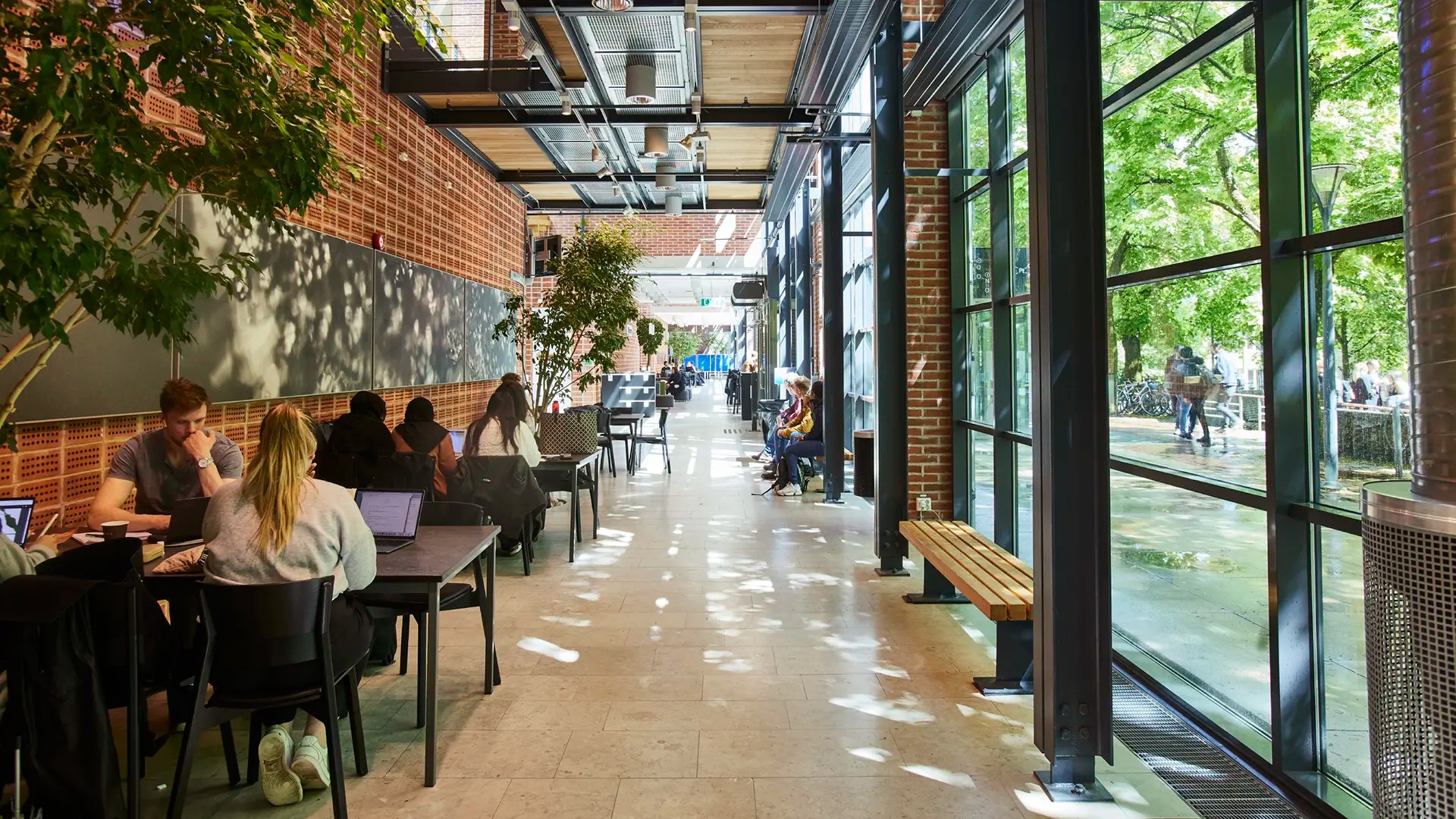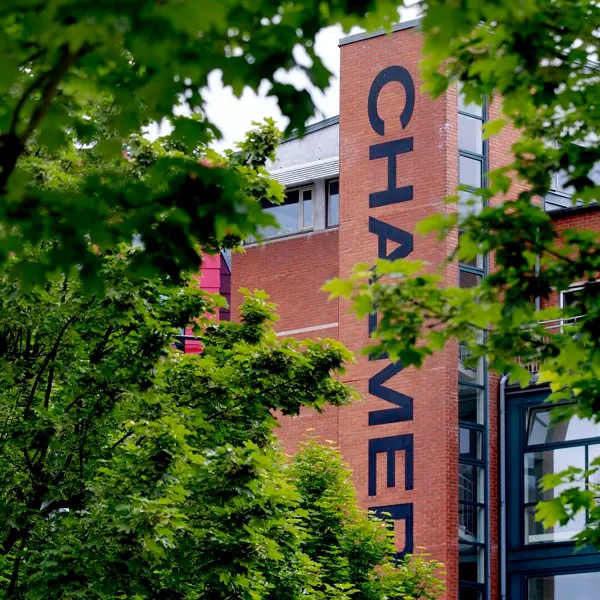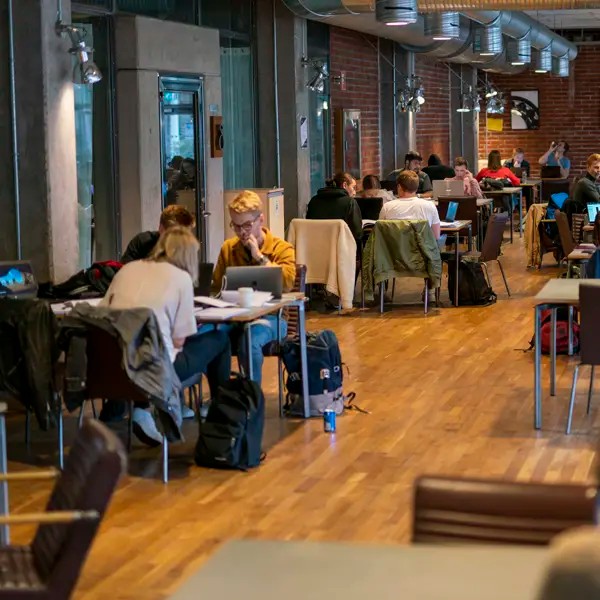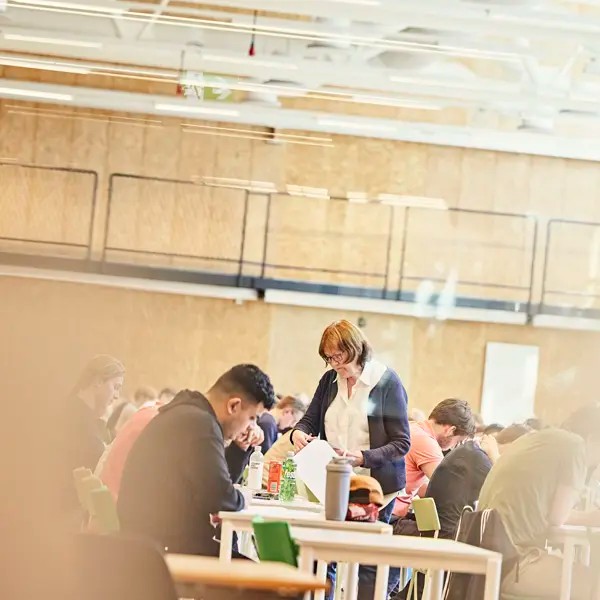
Safe at Chalmers is where you as an student can learn more about what harassment and sexual harassment are, and report if you have experienced unwanted behavior or witnessed it.
Whether you are a student or a visitor, you should feel safe on our campuses. We are each other’s study and work environment and together we are responsible for creating a higher education institution that we both are proud of and feel safe in. Our campuses should be free from harassment and discrimination. All of us need to contribute to make that happen.

Report an instance of unwanted conduct
If you have experienced something that created an environment that is intimidating, hostile, degrading, humiliating or offensive on our Campus, please speak out and tell us about it.

Talk to someone
Many people who have been subjected to discrimination or other violations suffer as a result and may need support to feel better. If something unpleasant is happening in our work environment, it is important to tell someone about it.

What does the law say
Chalmers has zero tolerance for all forms of discrimination, harassment and victimisation. This is based on the Discrimination Act and the Work Environment Act.

What you can do
As the person subjected to it, you get to decide what is unwelcome or uncomfortable for you. If you feel ill-treated in any way, trust your feelings and tell someone about it.
FAQ - common questions
Can I make an anonymous report?
Yes. You may report to us anonymously, but this will make a difference in terms of the measures the university can take. Anonymous reports are used as documentation for Chalmers’ preventive work and may lead to general measures being taken. To be able to take steps against a specific person, we must be able to undertake an investigation, and, to that end, we need your contact details so that we can talk to you about what happened.
Who will be involved in an investigation?
This depends on the incident, whether it is between students or between a student and an employee or between employees. All cases raised with the university are received by an investigation team consisting of staff from the university and representatives from the Student Union through the chair of the Social Unit (Student Welfare Officer, SO). The people who investigate a case will not have any connection to the programme, department or section where the incident took place.
Your Head of Programme or manager may know that an investigation has been initiated. They are responsible for implementing any measures following an investigation. If they are involved in the harassment themselves, their manager will be appointed as the person responsible. The line manager or Head of Programme of the person accused will also be informed.
How do I establish whether I have been reported?
If you have been reported, you will be informed of this by one of the investigation team, your Head of Programme or manager. You will be summoned to a meeting where you will be able to give your view of the situation. You can bring with you a person you trust for support, such as a your SAMO or union representative. This person is there to support you and should not discuss the incidents with the investigators.
What do I do if I feel that the report about me is not a true account?
Chalmers is obliged to form its own view of what happened. It is common for two people to perceive a situation differently from one another. You will always get the opportunity to give your version of what happened. An investigation is held in consideration of both parties.
Do I have to meet the person who subjected me to the behavior or reported me?
In terms of the investigation, in the first instance it is the person who has been subjected to the behavior who decides whether they want to meet the person who has been reported. In certain cases, such as when an incident is to be taken up by the Disciplinary Committee, the people concerned may need to sit in the same room.
What happens if I, as the person who has lodged a report, want to stop the investigation?
If you do not want to participate in the investigation, we cannot force you to do so. It is helpful if you do feel able to participate as it is important for how this type of problem is dealt with. We will support you as best we can during the investigation process. If your report raises an issue concerning someone who needs to be dealt with, we will try to do that, whether or not you participate. It is important to note that the law prohibits allowing you, as someone who has reported harassment or participated in an investigation in some other way, to be subjected to acts of retaliation during or after an investigation.
What support can I obtain?
Whether you have reported an incident or been reported, you will be offered support.
You can have with you someone you trust as support during investigation discussions. You will be offered a contact for discussions through student guidance counsellors, student healthcare representatives or occupational healthcare. It is also possible to contact them directly for individual support meetings. Several measures can be established to make you feel safer.
What happens if I am harassed by someone from Chalmers after university activities or working hours?
If, as a student at Chalmers, you are harassed by another student or employee, you should report it to us whether or not it happened during university activities or working hours, or outside of these. This also applies to incidents that occur in work experience situations, at conferences or anywhere else where you represent the university. If the incident does not fall under Chalmers’ work environment responsibility, we will help you to contact those responsible for investigating the incident.
What happens if, as a student, I go directly to the Student Union?
Matters that are reported directly to the Student Union and are internal are dealt with internally. It is primarily the chair of the Social Unit (Student Welfare Officer, SO) who is responsible for dealing with incidents that occur. In the case of major incidents, an incident group comes together, usually consisting of the Vice President of the Student Union and potentially a relevant person depending on the incident. If the incident is considered to be relevant to the university, the Student Welfare Officer will contact the Chalmers investigation team.
What happens when the investigation has been completed?
After an investigation, the investigation team makes an assessment and proposes potential measures for the manager or Head of Programme to decide upon. You will be able to read the assessment and expand on or clarify those sections concerning what you said.


